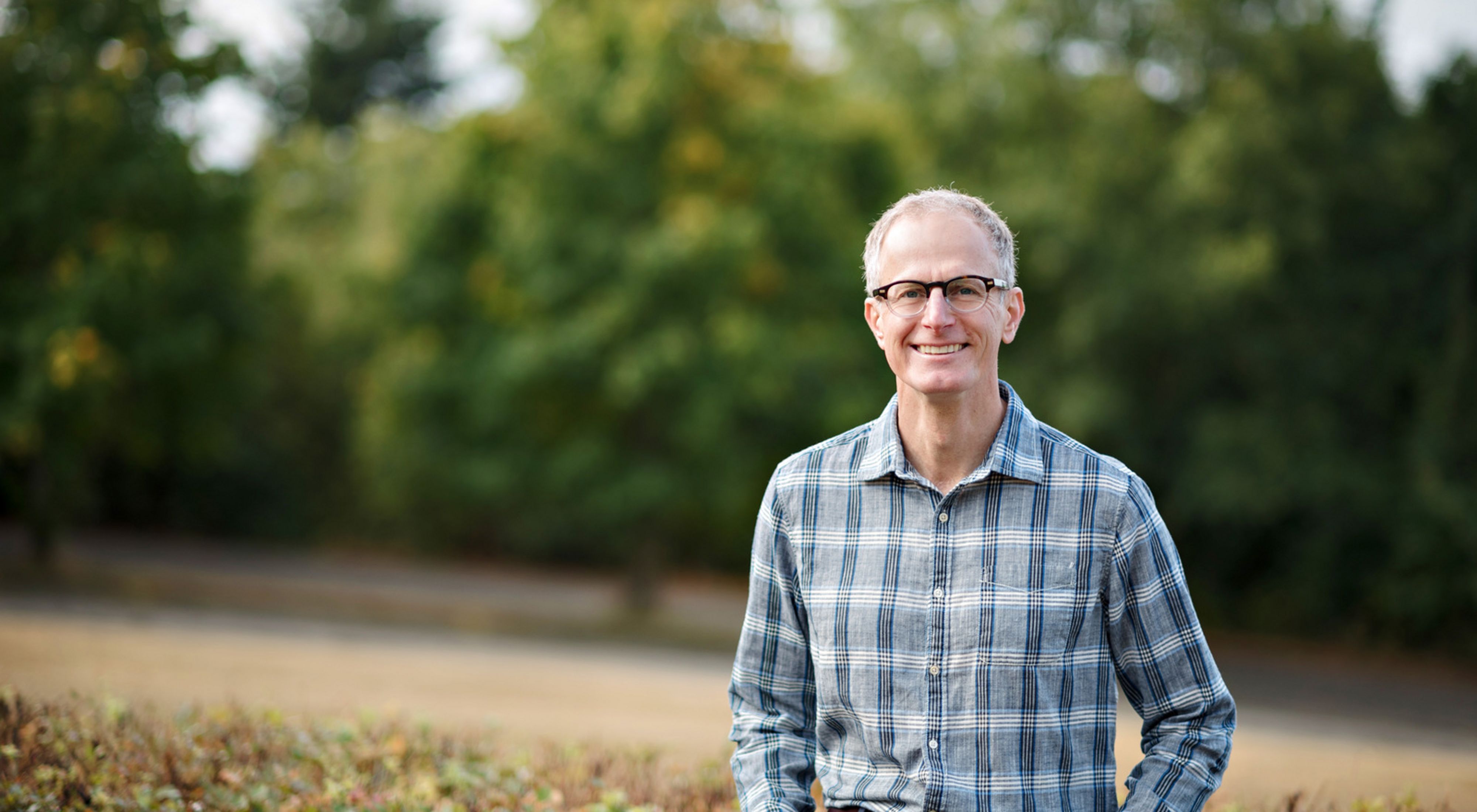He brings more than 25 years of experience in land and wildlife conservation, conservation biology, and leadership and management of conservation and business organizations to his work in Washington. He and his wife Liz moved from Idaho and now live in the Phinney Ridge neighborhood of Seattle.
In the Seattle office, we caught up with Mike for a Q&A:
nature.org:
Why does nature matter to you?
Mike Stevens:
I grew up in Spain and some of my earliest memories are of visits to the countryside and the beach – nature was about family and food. We spent two summers with friends in Finland – I was free to ride my bike through the woods all day; our meals were fish from the lake and vegetables from the garden. We moved to Santa Barbara when I was 11 and our family spent a lot of time exploring California and especially Yosemite and the eastern Sierra. There, I learned that nature offered challenge and inspiration and I was introduced to the region’s rich history of conservation.
nature.org:
What do you think is the most exciting new idea in conservation?
Mike Stevens:
I think the most exciting idea in conservation is also in a sense the oldest: how are we as people going to live and thrive in relationship to nature? There are so many exciting ways in which we are reshaping how we fish, cut trees, raise food, and protect our water and air. This region is already having conversations about and taking action in many of these areas, which was a huge draw for me.
nature.org:
What do you think are the most urgent issues facing us, locally and globally?
Mike Stevens:
The number of people on Earth is growing and we are collectively using more and more of the planet’s resources. So, first, we need to be creative about how we use and care for our natural resources so they can continue to sustain us all – this is not just a scientific issue; I believe it’s the fundamental social issue of our time. Second, we need to save room for wild nature – orcas, elephants, and sandhill cranes – not only for their own sake but also for the many ways they enrich our lives. Last, but certainly not least, I look forward to the challenge we have right here in our own backyard—the failing health of our beloved Puget Sound. Most folks think our beautiful estuary is in excellent health. We must join together to help heal it.
nature.org:
Why should people get involved with The Nature Conservancy?
Mike Stevens:
The Nature Conservancy leads and supports many of the most creative, collaborative, and effective efforts to tackle these issues around the world by bringing together individuals, companies, tribes, and government agencies to make lasting change. Being a part of The Nature Conservancy – as a donor, member, volunteer – is inspiring and fun as well as incredibly important.
nature.org:
What’s so special about Washington?
Mike Stevens:
Washington has it all – ocean, rivers, big mountains, forests and sagebrush steppe. We have wilderness and big cities, salmon and sage grouse. Due to our geographical location and economic connections, we are linked to Canada, Asia and the world. Environmental issues are a priority for many of the people in this region and part of the local culture, so we have an opportunity to work together make a bigger impact than what individual actions can do alone. This is possible since the Washington Chapter has a talented and committed staff and board, many passionate members and a long history of conservation success and innovation.
nature.org:
Tell us about proposing to your wife on Mount St. Helens?
Mike Stevens:
Liz and I hiked with a group of friends to the summit on a warm sunny day, ate lunch with views of Mt. Rainier and Mt. Adams, and then skied spring snow all the way back to the base. Of course, the most important part is that she said, “Yes.” It was a perfect day.
